Fourteen win Soros Fellowships
Among 30 students nationwide recognized
Fourteen Harvard-affliated students are among the 30 graduate students nationwide recently named Paul and Daisy Soros New American Fellows for 2006. Fellows receive a stipend of up to $20,000 plus half-tuition for as many as two years of graduate study at any institution of higher learning in the United States.
Now in its ninth year of operation, the Paul and Daisy Soros Fellowships for New Americans have already become one of the most highly recognized and sought-after awards for graduate study in the United States. Almost 800 applicants – naturalized citizens, resident aliens, or the children of naturalized citizens – completed applications this year. They represented 134 countries of origin and 360 colleges and universities.
“These candidates truly exemplify the kind of creative, multitalented, and extraordinarily accomplished New American that Paul and Daisy Soros want to honor and support through this program,” noted Warren F. Ilchman, director of the fellowship program.
This year’s Harvard-affiliated Soros Fellows are as follows.
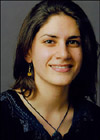
Deema Arafah is an intern and telemedicine coordinator for the World Health Organization in Jerusalem and the Occupied Palestinian Territories, supported by a fellowship from the Harvard Committee for Human Rights. Arafah completed her B.A. in history of science at Harvard, summa cum laude, with election to Phi Beta Kappa, in 2005. She has previously worked as an EMT and public health field researcher in the West Bank, and with Physicians for Human Rights-Israel, helping to coordinate medical evacuations. She has presented papers on Palestinian health and human rights at international conferences and was recently published in “Haaretz,” a major Israeli newspaper. Once an accomplished soccer player, she now enjoys coaching youth soccer teams in refugee camps and U.S. inner cities. Arafah will enter medical school in the fall of 2006, and hopes to pursue a career as a physician-advocate and medical educator. She is especially concerned with improving access to quality health care and education for persons rendered socially or politically “invisible”. Arafah was born in Cleveland to Palestinian parents who immigrated to the United States in 1978.
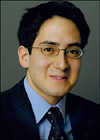
Alvaro Bedoya was born in Lima, Peru, in 1982 and raised in Vestal, N.Y. He graduated summa cum laude and Phi Beta Kappa from Harvard College with a B.A. in social studies. As an undergraduate, Bedoya performed outreach for the Migrant Farmworker Justice Project and wrote his senior thesis on the exploitation of foreign sheepherders in the American wool industry. Upon graduation, he worked as a research consultant for the United Nations International Labour Organization, co-authoring three studies that exposed the widespread existence of forced labor in Peru, Bolivia, and Paraguay. He is a J.D. candidate at Yale Law School, and hopes to use his legal education to fight for voting, labor, and immigrants’ rights, either in the courtroom or in government.
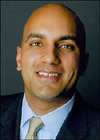
Amit Bouri is pursuing a M.P.P./M.B.A. joint degree at Harvard’s Kennedy School of Government and the Kellogg School of Management at Northwestern University, where he is leading global health and corporate social-responsibility initiatives. He received his B.A. in sociology and anthropology from Swarthmore College. While there, he studied traditional Chinese medicine in Shanghai, China, and co-founded a mentoring program for underprivileged immigrant children in Philadelphia’s Chinatown. After his graduation, Bouri first worked as a consultant for Bain & Company and later for the Elizabeth Glaser Pediatric AIDS Foundation, where he contributed to the implementation of international programs to prevent mother-to-child transmission of HIV. Recently, he helped develop a strategic plan for Johnson & Johnson’s HIV/AIDS philanthropic efforts. Bouri was born in California in 1978 and raised by a single mother from India. He envisions a career focused on mobilizing private, public, and nonprofit resources to address poverty and inequity.
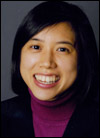
Susie Huang completed her B.A. and M.A. in chemistry, summa cum laude and Phi Beta Kappa, from Harvard in 2002. She will receive her Ph.D. in physical chemistry from the University of California, Los Angeles, this spring and begin her M.D. at Harvard in the fall. Huang has conducted extensive research in magnetic resonance spectroscopy and imaging, authored numerous publications, and given talks at international conferences. While completing her Ph.D. on a National Science Foundation graduate fellowship, she taught undergraduates and volunteered at the UCLA Medical Center. Huang was born in Pittsburgh in 1980 to parents from Taiwan. She envisions a career as a physician-scientist working on cancer detection and therapy through molecular imaging.
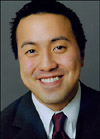
Paul Kwak is currently an M.M. candidate in collaborative piano at the Juilliard School. He received his B.A., magna cum laude, from Harvard in history and science. He also received an M.Sc. in social policy from Oxford. He begins medical school at Case Western Reserve University in the fall. Born in Kettering, Ohio, to Korean parents, he is now 24. Kwak plans to pursue otolaryngology in order to combine his fascination with the voice, singing, and music with his desire to become a physician.

Elizabeth Kwo is a first-year student at Harvard Medical School. She completed a B.A. in human biology from Stanford in 2004 and received the Lloyd W. Dinkelspiel Award. After graduation, she conducted research on elderly health-care disability and dependency as a Fulbright Scholar in Taiwan. Kwo created the Nepal Clinical Internship, a program that has sent more than 140 U.S. students to work in Kanti Children’s Hospital in Nepal, allowing them to develop clinical skills and experience in international health care. A published poet, Kwo has extensive experience abroad, working in orphanages in Mexico, establishing health clinics in rural Ecuador, building a women’s shelter in Guatemala, and researching traditional medicines in Peru. Born in Taipei, Taiwan in 1981, Kwo would like to run a nonprofit organization that improves health care for the elderly.
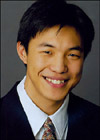
Darryl Li is a Ph.D. candidate at Harvard in anthropology and Middle Eastern Studies, and will begin a concurrent J.D. at Yale Law School in 2006. He earned an M.Phil. from Cambridge in 2003 and a B.A. from Harvard in 2001, where he wrote his thesis on the role of radio broadcasts in the 1994 Rwandan genocide. Li worked as a fellow at Human Rights Watch and as an information officer for the Palestinian Centre for Human Rights in Gaza. He also interned at the South Asia Human Rights Documentation Centre in New Delhi. Born in 1979 to Chinese-immigrant parents who are naturalized citizens, Li hopes to pursue a career alternating between scholarship and activist litigation.
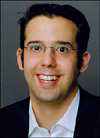
Theodore Marentis is an M.D. candidate at the Harvard-Massachusetts Institute of Technology Division of Health Sciences and Technology Program. He received his B.S. in biomechanical engineering and his M.S. in electrical engineering from Stanford, graduating Phi Beta Kappa and Tau Beta Pi. Born in Athens, Marentis and his family came to the United States in 1996. He became a naturalized citizen in 2004. At Stanford, Marentis was active in community service with such organizations as Habitat for Humanity and the Urban Ministry. His research on Micro-Electro-Mechanical Systems (MEMS) has been published three times. His immediate goal is to produce an implantable liver-dialysis machine. The co-inventor on a renal dialysis patent, Marentis believes that medicine is the perfect confluence of his passions for science, technological development, and having a positive social impact.
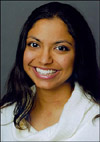
Susan Mathai is a first-year M.D. candidate at Yale. She graduated magna cum laude and Phi Beta Kappa from Harvard in 2005 with a degree in social studies. She was born in Dallas in 1983 to Indian parents who are naturalized citizens. While at Harvard, she received grants to support senior thesis research concerning health care in Cuba and community health work with Partners in Health. Fluent in Spanish and English, Mathai conducted research in Cuba and has been involved in activities utilizing her language skills, such as clinical research on reproductive health and clinical translating. While at Harvard, she directed the Mission Hill After School Program, a student-run project serving children in Roxbury, Mass. Mathai uses her domestic and international experiences to inform her education about the structural and social forces that shape the course of diseases disproportionately affecting the poor. She plans to dedicate her medical career to reforming health-care practices through direct service as a physician and through advocacy and research.
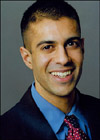
Vipin Narang is a Ph.D. student in the Department of Government at Harvard, where he focuses on international security studies. He received a B.S. and M.S. in chemical engineering from Stanford in 2002, where he was elected to Phi Beta Kappa as a junior and graduated with academic distinction. Narang transitioned to international politics at Oxford University, earning an M.Phil. in international relations with distinction in 2004 as a Marshall Scholar. He has held research positions at Merck & Co., the United Nations in Geneva, and the RAND Corp. where he was a graduate fellow. He has authored or co-authored four publications. Narang hopes to apply his training in chemical engineering and international politics to a career dedicated to addressing modern threats to international security, either as an academic or in government service. He was born in the Bay Area in 1979 to Indian parents, and his family currently lives in Saratoga, Calif.
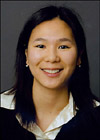
Sze-Ling Ng is a Ph.D. candidate at Harvard in molecular and cellular biology. In 2005, she graduated from the Honors College at Michigan State with a 4.0 GPA and a dual B.S. in biochemistry and physiology. She was born in China in 1983 and naturalized in 2003. Ng has conducted research and has published in “Nature Biotechnology.” In addition, as an undergraduate, she tutored fellow students, led several student organizations, and performed service work in Mexico, Puerto Rico, and the United States. She is the recipient of the Featherstone Prize and the Michigan State University Board of Trustees Award. She aspires to work in academia as a principal investigator, professor, and mentor. As a future educator, Ng hopes to facilitate programs that encourage teenagers to pursue a higher education and science-related careers.
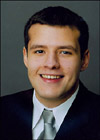
Antonio Perez is a first-year M.D./M.B.A. candidate at Harvard. He earned a B.A. in history and science from Harvard, where he was elected to Phi Beta Kappa and received the Detur Prize and John Harvard Scholarship. A research fellow of the Howard Hughes Medical Institute, Perez helped develop stem cell therapies for muscular dystrophy. His findings have been featured in numerous national conference presentations and scientific publications, including “Proceedings of the National Academy of Sciences” and “Gellis and Kagan’s Current Pediatric Therapy.” Perez also co-founded PABSELA, Harvard’s first program aiming to advance biomedicine in Latin America. He directed Harvard ExperiMentors, a science education program in elementary schools. Born in North Bergen, N.J., in 1984 to Cuban parents, Perez hopes to become a cardiologist and health-care executive.
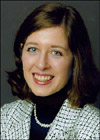
Yulia Ryzhik is a Ph.D. student in English at Harvard, where she holds a Mellon Fellowship in humanistic studies. She received her B.A., summa cum laude and Phi Beta Kappa, from Harvard in 2005. Born in 1983, Ryzhik came to the United States from Moscow with her family in 1995. As an undergraduate, she was awarded various institutional prizes and travel grants. In 2004, Ryzhik served as an interpreter between Harvard’s Lowell House and the Danilov Monastery near Moscow in negotiations over the monastery’s bells, which were acquired by Lowell House during Stalin’s regime. She pursues intensive language study in her summers and participates in poetry and elocution competitions. She intends a career as a professor of literature specializing in Renaissance poetry.
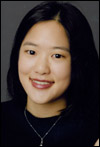
Colette Shen is pursuing an M.D./Ph.D. in bioengineering at the University of Pennsylvania. She graduated summa cum laude and Phi Beta Kappa from Harvard in 2004 with a B.A. in engineering sciences. She has conducted lab research on tissue engineering and stem cells at MIT and Massachusetts General Hospital. Her research has led to several journal publications and was honored by the National Inventors Hall of Fame. She served as an undergraduate representative on the Harvard College Curricular Review, was director of the Harvard-MIT Hippocratic Society promoting issues in health care, and was vice-president of Women in Science at Harvard-Radcliffe. Currently at Penn, Shen is conducting angiogenesis research and serves on the medical school’s admissions committee. She looks forward to a career as a physician-scientist-educator, pursuing research that bridges engineering tools with problems in medicine, while also making science accessible to the general public. Shen was born in 1982 to parents from Taiwan who now reside in Houston.
The Paul and Daisy Soros Fellowships for New Americans was established in 1997 as a charitable trust of $50 million to assist new Americans in furthering their careers through graduate education. The donors, both new Americans themselves, created the trust as a way to thank the United States for the life it has provided them. Since its inception, 232 fellowships have been awarded. There are currently 60 fellows at 21 universities studying 21 different subjects. The program also has 172 alumni.




